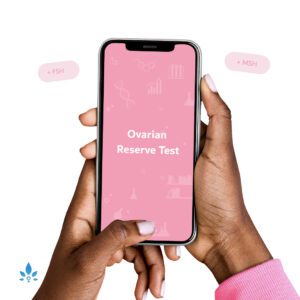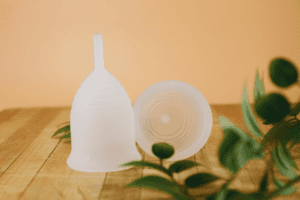Coping With PMS


It’s not always easy being female. I remember getting my first period when I was 12 years old. My mum, ever supportive and loving, but also a realist; first congratulated me on reaching this big milestone, then dropped the metaphorical bombshell that this was it until I reached menopause (which at the time seemed a lifetime away!) A life mapped out in monthly cycles of approximately 28 days. The inconvenience, discomfort and expense of an existence dictated by my hormones!
Of course for many of us that is not strictly true; we get (in many cases) welcome relief from our periods whilst pregnant and breastfeeding; many contraceptives in use today cease, or significantly reduce, our periods; we learn to negotiate our monthly menstruation with minimal fuss and inconvenience. Ultimately, most of us do manage to take some control over our menstrual cycles. However, there is another hurdle that, as women, a high percentage of us have to navigate during our reproductive years, and that is premenstrual syndrome, or PMS.
Affecting as many as 3 out of 4 of us, PMS is a collection of physical and emotional symptoms that start just before your period does and ease off as it finishes. PMS is not pleasant; at best it causes mild pain and a disgruntled mood; however, at its worst, it can severely impact all areas of a female’s life and result in chronic depression and anxiety.
So what is PMS? What causes it? How can you manage it and what should you do if ‘that time of the month’ becomes a living nightmare?
Symptoms of PMS
PMS causes a plethora of symptoms, which broadly speaking, can be split into those that are physical and those that are behavioural or emotional. Symptoms not only vary between women, but can also change in number and severity in the same woman from month to month.
Physical:
- Bloating/tummy pain
- Breast tenderness
- Weight gain (fluid retention)
- Headaches/backaches
- Skin problems/acne
- Constipation/diarrhoea
Emotional:
- Fatigue
- Tearfulness
- Trouble concentrating
- Irritability
- Anxiety/depression
- Mood swings
- Difficulty sleeping
What causes PMS?
As a medical condition, PMS is not well understood. The fact that it typically correlates with the menstrual cycle and disappears during pregnancy and menopause suggests that it is caused by fluctuating hormone levels. However, the reason why some women are affected a lot more than others remains unclear.
How is PMS diagnosed?
There is no single test used to diagnose PMS. Many women never receive a formal diagnosis, they just learn to live with the monthly symptoms.
One option is to keep a symptom diary, tracking the frequency, duration and severity of any symptoms you have that you suspect may be linked to your monthly cycle. This will enable you to identify any trends or patterns. The Nabta app enables you to log any symptoms you have as well as the start and end date of your period. Anticipating and understanding any symptoms you are experiencing, can help to make them more tolerable, as well as enabling you to take preventative steps to manage them.
If you do visit your doctor, he or she may carry out a few tests to rule out other conditions. Thyroid disorders are relatively common in women of childbearing age and share a number of similar symptoms with PMS, including weight gain, depression and fatigue. Your doctor might recommend thyroid testing if you have these symptoms. He or she might also recommend that you undergo a mood screening test to ensure that you do not have clinical depression, which might require more intensive treatment and monitoring.
Treating PMS
Unfortunately, whilst you are still having periods, you are unlikely to find any miraculous cure for your PMS. If you do not wish to conceive, oral contraceptives are one option for the management of PMS. However, not all women want to rely on long-term synthetic hormones. Most treatment relies on managing the symptoms that you are experiencing. Alongside, educating yourself so that you better understand your own body, some at-home remedies you can attempt include:
- Exercise. Regular moderate-intensity exercise, such as walking, cycling or swimming, can improve your energy levels and reduce stress. It might be the last thing you feel like doing, but physical activity has also been shown to relieve the discomfort of period pain.
- Healthy diet. Increasing your daily intake of water and ensuring you get plenty of fresh fruit and vegetables will improve your overall health; likewise, limiting your alcohol intake and giving up smoking will also help. Eating smaller meals and reducing your salt consumption can help prevent bloating.
- Improving the duration and quality of your sleep can help you to feel better in the days leading up to your period. This may be easier said than done though, as there are few quick fix solutions to insomnia. Reducing stress and taking part in relaxation or meditation activities before bed can help. Yoga is a great stress reliever.
- Over-the-counter pain relief, specifically aspirin and ibuprofen can help to relieve some of the physical symptoms of PMS, including headaches, backache and cramps.
Many women take supplements including vitamin B6, vitamin E, calcium and magnesium or herbal remedies, such as ginkgo, ginger, chasteberry (Vitex agnus), evening primrose oil and St. John’s wort. Unfortunately there is no scientific evidence supporting the use of these products and, in the case of herbal remedies, no monitoring of their safety or effectiveness. You should always speak to your doctor before attempting any complementary therapies.
PMS versus PMDD
PMS can be challenging enough to deal with, but for some women the condition interferes with their work, their relationships and their day-to-day social interactions. 3-5% of menstruating women will be diagnosed with severe PMS, or PreMenstrual Dysphoric Disorder (PMDD). This is a debilitating version of PMS that, in its most severe form, can result in suicidal thoughts. If you suspect that you are suffering from PMDD contact your doctor for help, support and advice. Click here to read more about PMDD.
Try Nabta’s PMS Pack and see if it will help you on your day to day activities.
Nabta is reshaping women’s healthcare. We support women with their personal health journeys, from everyday wellbeing to the uniquely female experiences of fertility, pregnancy, and menopause.
Get in touch if you have any questions about this article or any aspect of women’s health. We’re here for you.
Sources:
- “PMS & PMDD: Causes, Symptoms, Treatments & Relief.” Cleveland Clinic, my.clevelandclinic.org/health/articles/9132-premenstrual-dysphoric-disorder-pmdd.
- “PMS (Premenstrual Syndrome).” NHS Choices, NHS, www.nhs.uk/conditions/pre-menstrual-syndrome/.
- “Premenstrual Syndrome (PMS).” Mayo Clinic, Mayo Foundation for Medical Education and Research, 7 Feb. 2020, www.mayoclinic.org/diseases-conditions/premenstrual-syndrome/symptoms-causes/syc-20376780.













































